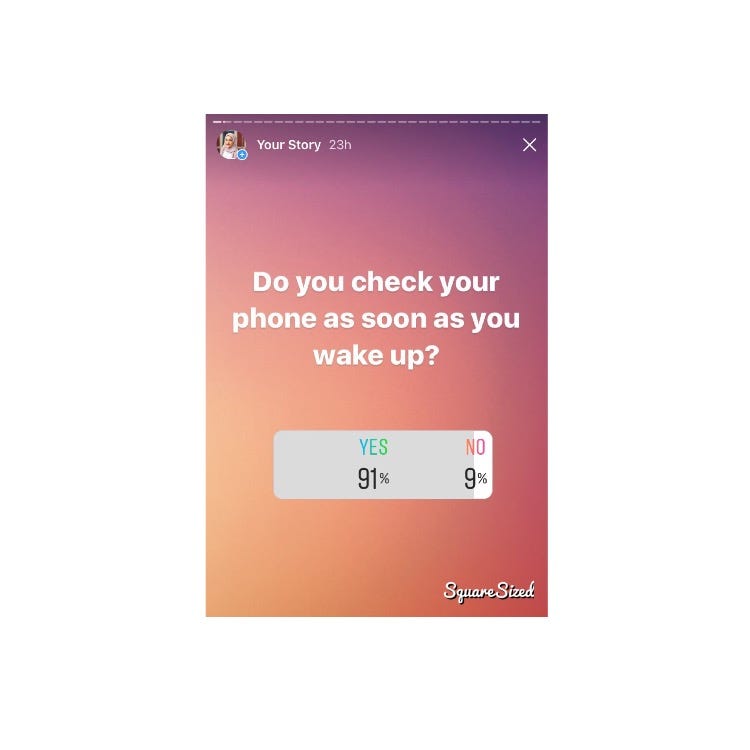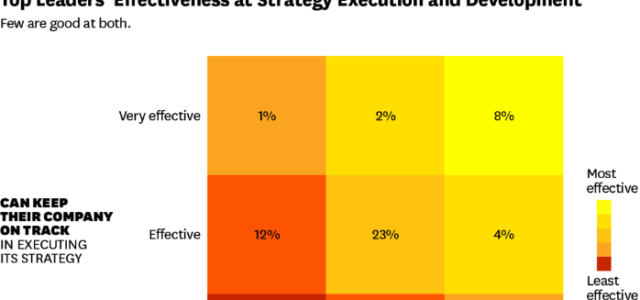Smartphones and social networking companies have deliberately designed their platforms to be as addictive as possible. Netflix CEO Reed Hastings admits the aim of his company:
Something scary is happening: our time is their money.
The more time we spend on social media, the more data we generate and produce for companies to collect, process and analyse so that they can tailor their adverts toward our preferences and make all sorts of predictions about us.
Even if you are a ‘ghost’ user and you’re not really that active on social media — as long as you are investing your time in it, you are producing data by just clicking on things. Clicking on a user’s profile, scrolling through their feed, following a certain account, etc.
And, according to my own research on a very basic Instagram poll, over 100 of my followers voted whether or not they check their phones as soon as they wake up. 91% indicated they do while only 9% stated that they don’t.

So how did this happen?
Here are 4 things that were designed to make us so addicted to our phones:
- Affordances are so easy… sometimes too easy.
How many times do you struggle to turn Netflix off before the next episode continues? How many times do you feel too lazy to comment on your friend’s picture on Facebook, so you end up ‘loving’ it? Social media companies purposely built their affordances to make it very easy to generate data so that they could use it to their benefit.
2. When they are easy, they can be random too.
A study has been made on how the gambling industry was designed to be so addictive in the same way that the Internet was designed. When a player at the casino wants to hit the jackpot, all he needs to do is pull that lever and the most random outcomes are shown. So when the player keeps pulling with an inch of hope of winning the jackpot, he can spend hours on that same game because of how effortless yet random it can get.

This is said to be the same method that is used when we refresh our feeds, emails and notifications.
Each time you pull down your phone screen to refresh, you have hope that something new comes up, even when it doesn’t.

3. They use flashy colours.
Facebook’s notifications used to come in blue to be in sync with its theme. However, it changed them to appear in red so that it captures our attention, excites us and mostly gives us the urge to get rid of them. The same method is now being used by Instagram and LinkedIn.



4. They feed our insecurities.
Encouraged to add an Instagram filter just before thinking of a catchy caption can make you want to apply a filter every time you post a picture; we just don’t like the natural versions of ourselves anymore. In the same way, Snapchat’s face filters actually alter our faces by making our noses thinner, skin much brighter and eyes much larger; we start to hate taking filter-less selfies of our faces.
Affordances such as likes, comments, number of followers and the way Twitter or Facebook encourage their users to ‘say what’s on their mind’ gives us affirmation that someone actually cares or thinks we’re cool enough. When everything on our profile is about us, it makes us feel important, or just self-absorbed narcissists.
Feeling depressed yet? Here are four tips that you can try out so that you can gain some more self-control over your smartphone:
- Stay logged out! Don’t let the trick of keeping you logged on be able to easily check your social media apps. Also, try to use really long or annoying passwords that can keep you from making an effort to logging in every time.
- Turn off notifications. These include loud but short pings, vibrations and even notification banners from apps that are not urgent.
- Delete unnecessary apps. Nobody needs 7 social media applications on their phone. Keep the important or your favourite ones, just keep it limited.
- Post for the right reasons and not for the likes and comments. Don’t confuse your intentions with why you want to post a photo: is it because you think it’s nice or because you want to affirm that everybody else thinks it’s nice?
We have to take caution with how our social media is leading our lives and can affect our health. As convenient as smartphones and the Internet can be, we must not overlook the other motives that are put in to exploit their users (and that includes us).
Article by channel:
Everything you need to know about Digital Transformation
The best articles, news and events direct to your inbox







